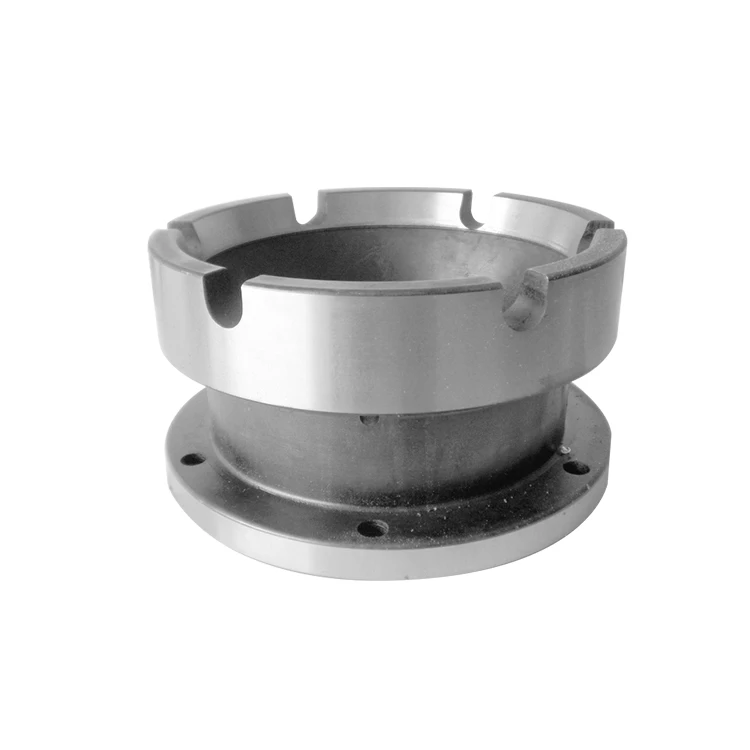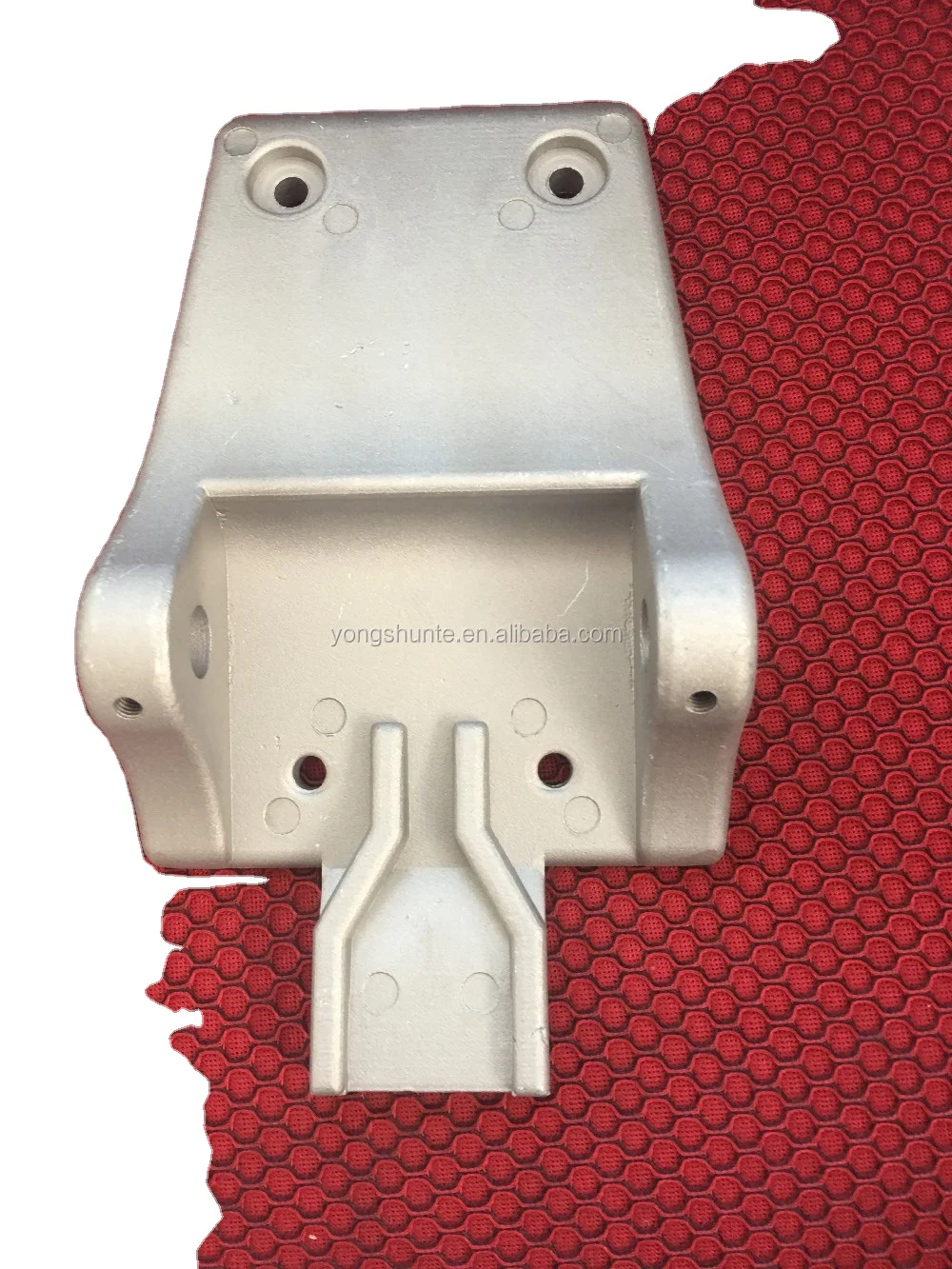The Impact of Innovative Factory Providers on Lasting Production Practices
Ingenious factory solutions play a crucial duty ahead of time sustainable manufacturing practices. By integrating reusing technologies and energy-efficient processes, these solutions substantially minimize environmental effect. Factories can reclaim valuable products, thus decreasing dependence on virgin sources. As automation and lean manufacturing principles obtain traction, manufacturing performance is enhanced. The complete level of these developments and their implications for the future of making remain to be discovered.
The Role of Advanced Recycling Technologies in Foundries
Advanced reusing innovations are changing the landscape of factories by enhancing product healing and decreasing waste. These cutting-edge processes permit foundries to recover beneficial metals and materials from scrap, minimizing dependence on virgin sources. By integrating innovative sorting, shredding, and melting methods, foundries can efficiently remove useful products from thrown out products, thereby advertising a round economic climate.
In addition, these modern technologies support the production of high-quality alloys and parts, making certain that recycled products fulfill rigid industry criteria (Aluminum Foundry). Consequently, foundries are not only enhancing their product efficiency but likewise reducing the ecological effect connected with typical production approaches
This change in the direction of progressed reusing not only strengthens financial stability for factories however additionally aligns with global sustainability objectives. Inevitably, the consolidation of these technologies stands for a considerable progression in the quest for sustainable production techniques within the factory field.
Power Performance: Lowering Intake in Production Processes
Energy effectiveness in manufacturing procedures is critical for lasting operations. Approaches such as process optimization methods, renewable power combination, and waste warm healing play crucial duties in reducing energy intake. By focusing on these areas, producers can considerably lower their ecological impact while boosting efficiency.
Process Optimization Techniques
A significant number of producing centers are significantly taking on process optimization techniques to boost energy performance and reduce intake. These techniques involve evaluating and fine-tuning manufacturing workflows, determining bottlenecks, and applying automation to improve operations. By leveraging information analytics, makers can check power usage in real-time, enabling aggressive modifications to decrease waste. Techniques such as Lean Production and Six Sigma focus on getting rid of inefficiencies and maximizing resource allowance. In addition, advanced innovations like Web of Points (IoT) sensors give understandings right into tools performance, assisting in anticipating upkeep that prevents power loss. In general, these process optimization methods not just contribute to decreased power consumption yet also cultivate a society of continuous enhancement within manufacturing environments, aligning operational methods with sustainability objectives.
Renewable Power Combination
Lots of manufacturing centers are progressively incorporating sustainable energy resources to enhance general power effectiveness and reduce reliance on conventional power grids. This modification consists of the adoption of solar, wind, and biomass power, which can considerably decrease operational prices and decrease carbon impacts. By using these sustainable energy sources, producers not only minimize their ecological impact however additionally improve power strength. Additionally, incorporating renewable energy systems typically entails advanced innovations such as power storage space and clever grid solutions, which optimize power usage and help with real-time monitoring. This assimilation supports manufacturers in attaining regulative compliance and conference sustainability objectives while promoting innovation in production procedures. Inevitably, renewable resource assimilation represents a critical change in the direction of even more sustainable production practices and lasting viability.
Waste Heat Recovery
Integrating eco-friendly energy sources establishes the stage for more improvements in energy efficiency, especially with the application of waste warm healing systems. These systems catch excess thermal energy generated during manufacturing processes, which would certainly or else be lost to the atmosphere. By repurposing this warmth, foundries can substantially reduce their power consumption, lower operational expenses, and minimize their carbon impact. The recovered warm can be made use of for different applications, such as home heating, power generation, or preheating resources. Therefore, waste warm recuperation not only enhances power effectiveness but likewise adds to a lasting manufacturing model. Cutting-edge foundry solutions that prioritize this modern technology are leading the way for an eco accountable industrial landscape, straightening productivity with eco-friendly stewardship.
Using Eco-Friendly Products in Shop Procedures
As the demand for sustainable manufacturing methods expands, factories are progressively turning to green products to enhance their operations. By incorporating sustainable options, such as recycled steels and bio-based binders, factories can considerably decrease their environmental footprint. These materials usually call for less energy for processing and can minimize dangerous exhausts throughout manufacturing.
The adoption of eco-friendly products not only aligns with governing requirements however additionally fulfills customer choices for greener products. Foundries are checking out innovative options, such as using natural ingredients that improve mold and mildew top quality while staying non-toxic.
The shift to lasting materials fosters a round economic situation by advertising resource reuse and reducing waste. In addition, this adjustment can boost the general effectiveness of foundry procedures, as eco-friendly materials frequently display remarkable properties, resulting in enhanced item efficiency - Aluminum Casting Company. Inevitably, the application of eco-friendly materials represents an important action towards lasting manufacturing in the foundry industry

Advancements in Waste Administration and Reduction Techniques
The shift towards eco-friendly products in foundry operations paves the method for improvements in waste monitoring and decrease strategies. Ingenious factory solutions are progressively click to investigate taking on strategies that minimize waste generation and promote recycling. Methods such as closed-loop systems permit the reuse of products, considerably minimizing the volume of waste produced during manufacturing processes. Additionally, improvements in purification and splitting up modern technologies make it possible for the effective healing of useful byproducts, which can be reintegrated right into the production cycle.
Furthermore, the implementation of real-time monitoring systems gives data-driven understandings into waste generation patterns, assisting in notified decision-making to enhance resource use. Factories are likewise discovering biowaste options, transforming natural waste right into energy or functional materials, even more advertising sustainability. These innovations not just add to a circular economic climate yet also improve the general ecological performance of foundry procedures, underscoring the sector's dedication to lowering its environmental impact.
The Effect of Automation on Sustainable Manufacturing
While many sectors go for sustainability, automation becomes a vital variable in enhancing sustainable production practices within foundries. By integrating automated systems, factories can accomplish better efficiency, decrease waste, and reduced energy usage. Automated processes enable for specific control over production criteria, lessening defects and rework, which in turn conserves sources.
Additionally, automation facilitates the tracking of ecological impacts, allowing real-time changes that line up with sustainability objectives. Aluminum Foundry. Advanced robotics and man-made intelligence can enhance material use, resulting in considerable decreases in scrap and exhausts
Additionally, automated technologies promote much safer workplace by handling dangerous tasks, consequently improving employee health while guaranteeing conformity with environmental policies. Generally, the fostering of automation within shops not just improves operations yet likewise plays an essential function ahead of time sustainable manufacturing methods, adding to a more responsible commercial landscape.
Situation Studies: Effective Execution of Sustainable Factory Practices
Successful execution of lasting methods in foundries can be shown via different study that highlight measurable end results and innovative approaches. One remarkable instance is a mid-sized factory that took on a closed-loop water recycling system, decreasing water consumption by 40% and lowering wastewater generation. Furthermore, this center altered to making use of green mold products, which not just enhanced product top quality however also boosted employee safety.
An additional considerable case involved a huge foundry incorporating renewable resource sources, such as solar panels, which offset 30% of its energy requires. This effort not just reduced functional expenses yet likewise added to a significant reduction in carbon emissions.
Last but not least, a shop that executed lean production techniques reported a 25% boost in performance, causing much less material waste and maximized manufacturing processes. These instances jointly underscore the substantial benefits and sustainability developments achievable via cutting-edge foundry practices.
Frequently Asked Concerns
Just How Do Cutting-edge Shop Solutions Contribute to Total Sustainability Objectives?
Cutting-edge foundry services boost overall sustainability goals by enhancing resource use, minimizing waste, and improving power performance. These advancements add to decrease carbon footprints and advertise environmentally liable methods within the production field, supporting broader sustainability campaigns.
What Are the Economic Benefits of Embracing Sustainable Shop Practices?
Embracing sustainable factory methods can reduce functional special info expenses, improve source effectiveness, and enhance competition. Furthermore, these practices can draw in eco-conscious clients and investors, inevitably bring about boosted earnings and long-term financial viability for organizations.
Exactly How Can Tiny Shops Implement Lasting Technologies Successfully?
Little foundries can apply lasting advancements successfully by embracing energy-efficient technologies, maximizing resource use, educating team on sustainable techniques, Check This Out working together with distributors for environment-friendly products, and taking part in continual improvement procedures to lower waste and discharges.
What Qualifications Exist for Sustainable Factory Procedures?

How Do Customer Preferences Influence Sustainable Production in Foundries?
Consumer preferences considerably influence lasting manufacturing in foundries by driving demand for green items. As customers prioritize sustainability, foundries adapt their methods, incorporating greener materials and modern technologies to fulfill market expectations and improve their affordable benefit.
By repurposing this warm, factories can significantly minimize their energy consumption, lower functional prices, and lessen their carbon footprint. Shops are additionally discovering biowaste options, transforming organic waste into power or usable products, even more advertising sustainability. By integrating automated systems, foundries can achieve higher performance, decrease waste, and reduced energy intake. Another significant case involved a large shop incorporating sustainable energy sources, such as solar panels, which offset 30% of its energy requires. Innovative shop services boost general sustainability objectives by maximizing resource usage, reducing waste, and boosting power efficiency.